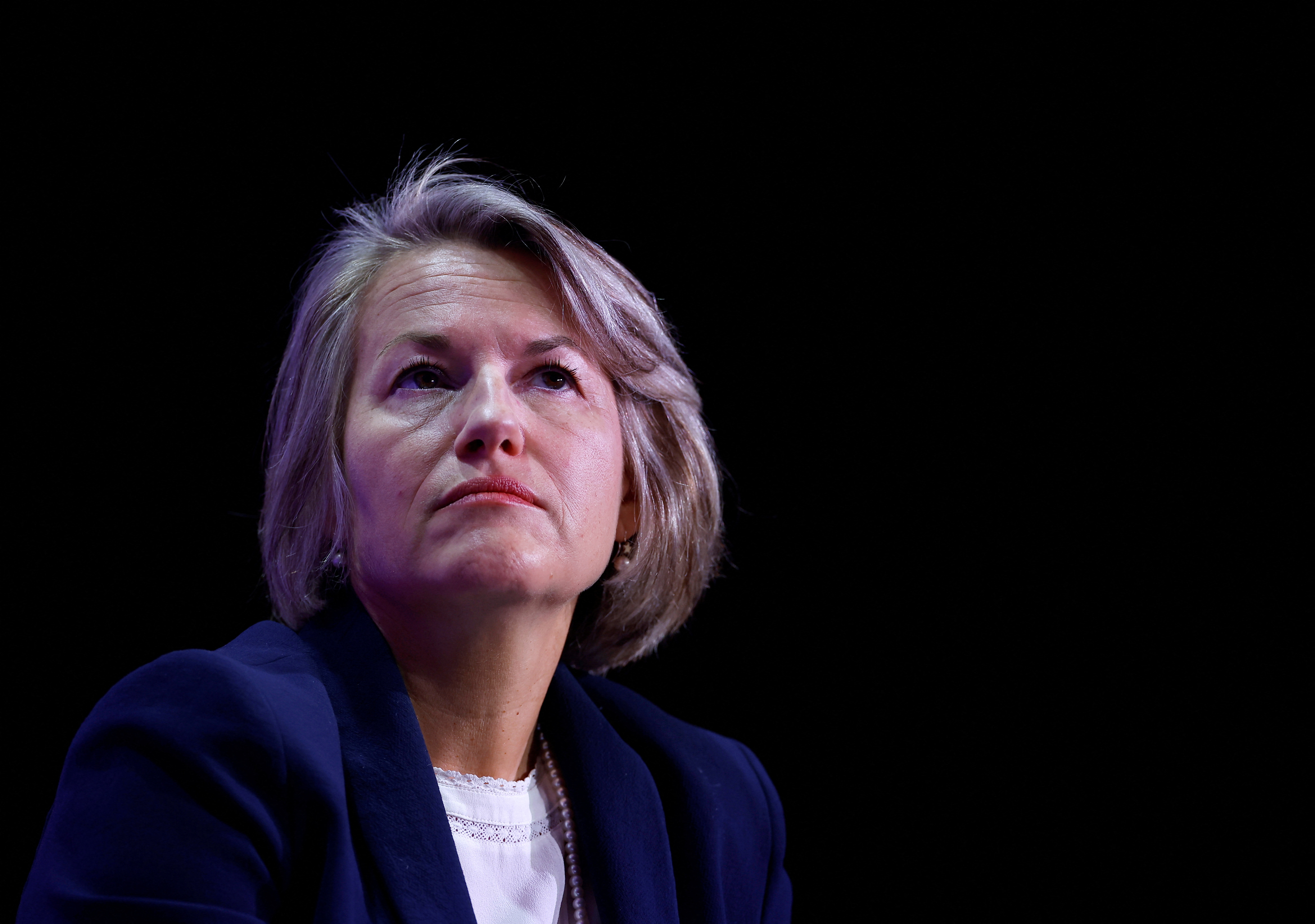
Air France CEO Anne Rigail attends a pannel at the Women’s Forum for the Economy and Society in Paris, France, November 29, 2022. REUTERS/Christian Hartmann/file photo Acquire Licensing Rights
PARIS, Sept 28 (Reuters) – Air France (AIRF.PA), airport group ADP (ADP.PA) and motorway operators criticised the French government’s plans to impose a new tax on the transport sector, saying that the move would hurt their profits and make travel costlier.
The 2024 budget bill, unveiled on Wednesday, introduced the tax on road operators such as Vinci (SGEF.PA) and Eiffage (FOUG.PA), as well as on airport operators such as ADP, seeking to raise an estimated 600 million euros ($629.9 million) annually.
The tax is “not at all good news … as the airport operators will pass on this extra cost on airlines,” Air France CEO Anne Rigail told RTL Radio.
The transport sector taxes are aimed at showing that the government is keen to protect the environment and tackle climate change, while also raising money for the French state.
But with the fight against inflation high on the agenda of a government that has also promised not to increase taxes on households, there was much debate on who would take the hit from these environmentally focused fiscal plans.
ADP, which operates Paris’ two main airports, said it would transfer 75% of this new tax to airlines, by raising the latter’s fees over a two to three-year period.
Given that within the airport sector, this tax will principally hit ADP, Air France’s Rigail deemed it unfair since smaller airports used by the carrier’s low-cost rivals would not be impacted in the same way.
“It poses problems for us. For us, it raises new competitive distortions which will hurt us,” she said.
Highway operator Vinci Autoroutes said the tax was contrary to both the spirit and letter of highway concession contracts and that it would use all available means of appeal.
It told Reuters that the taxes would “inevitably” lead to an increase in toll fees.
But Finance Minister Bruno Le Maire ruled it out, saying highway operators would not be allowed to pass on the tax to clients.
Motorway operator and construction company Eiffage (FOUG.PA) also said it would explore all possible avenues to oppose the new tax.
It said that had the tax been in force in 2022, it would have resulted in a decrease of around 117 million euros ($122.9 million) in the group’s consolidated operating profit on ordinary activities.
Reporting by Sudip Kar-Gupta, Benoit Van Overstraeten, Jean-Stephane Brosse, Ingrid Melander, Blandine Henault; Editing by Sharon Singleton and Anil D’Silva
Our Standards: The Thomson Reuters Trust Principles.

/cloudfront-us-east-2.images.arcpublishing.com/reuters/OEUABBDJSZNYNOHJ3ANWSJ7VWQ.jpg)